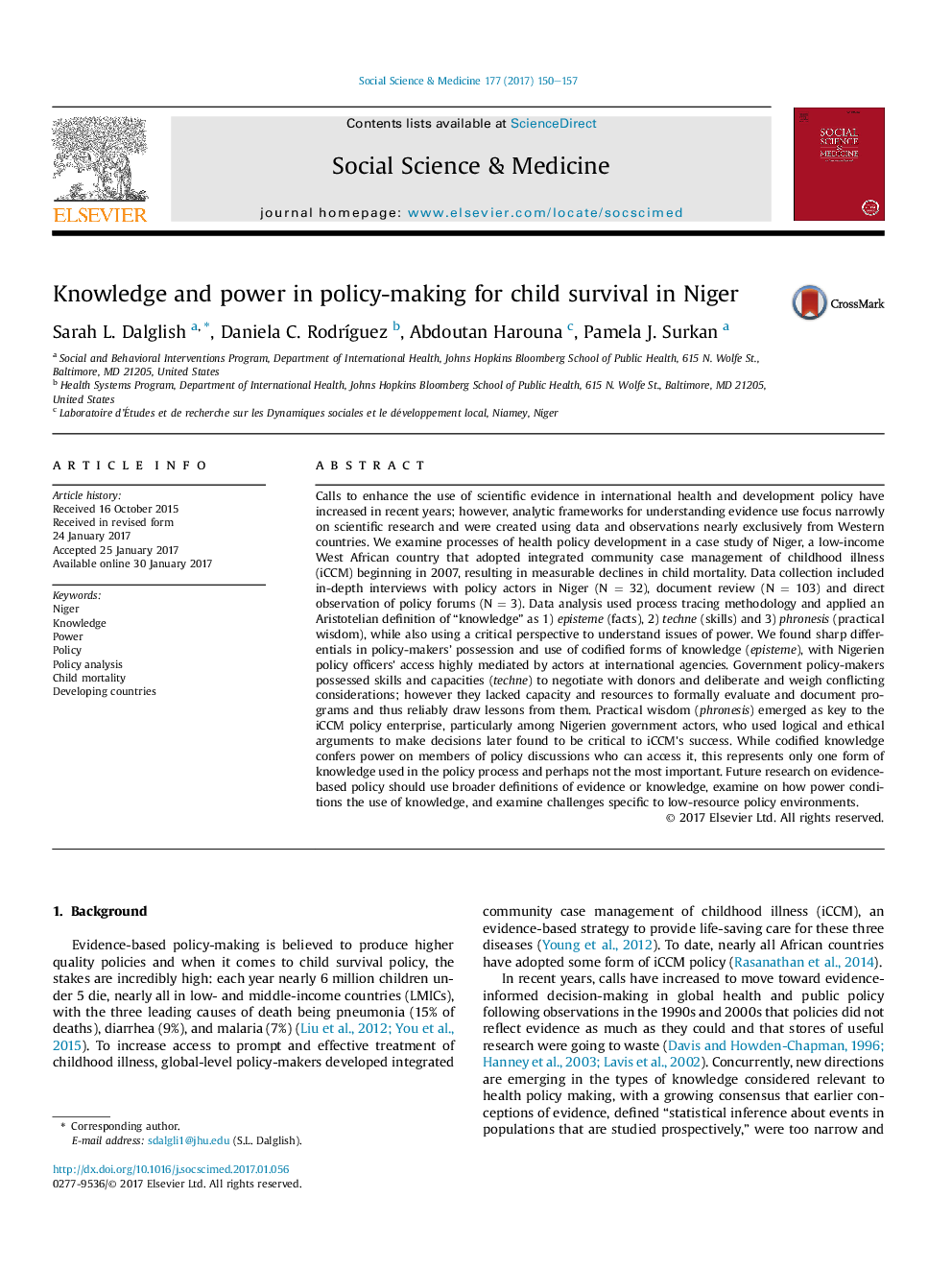| کد مقاله | کد نشریه | سال انتشار | مقاله انگلیسی | نسخه تمام متن |
|---|---|---|---|---|
| 5046721 | 1475992 | 2017 | 8 صفحه PDF | دانلود رایگان |
- Current frameworks describing evidence use in policy-making are overly narrow.
- Research evidence is not the only or most important type of knowledge.
- Practical experience, negotiation, and logical/ethical argument are also critical.
- Codified knowledge confers power on those who can access it in low-income settings.
- Future research must define knowledge more broadly and identify whom it empowers.
Calls to enhance the use of scientific evidence in international health and development policy have increased in recent years; however, analytic frameworks for understanding evidence use focus narrowly on scientific research and were created using data and observations nearly exclusively from Western countries. We examine processes of health policy development in a case study of Niger, a low-income West African country that adopted integrated community case management of childhood illness (iCCM) beginning in 2007, resulting in measurable declines in child mortality. Data collection included in-depth interviews with policy actors in Niger (NÂ =Â 32), document review (NÂ =Â 103) and direct observation of policy forums (NÂ =Â 3). Data analysis used process tracing methodology and applied an Aristotelian definition of “knowledge” as 1) episteme (facts), 2) techne (skills) and 3) phronesis (practical wisdom), while also using a critical perspective to understand issues of power. We found sharp differentials in policy-makers' possession and use of codified forms of knowledge (episteme), with Nigerien policy officers' access highly mediated by actors at international agencies. Government policy-makers possessed skills and capacities (techne) to negotiate with donors and deliberate and weigh conflicting considerations; however they lacked capacity and resources to formally evaluate and document programs and thus reliably draw lessons from them. Practical wisdom (phronesis) emerged as key to the iCCM policy enterprise, particularly among Nigerien government actors, who used logical and ethical arguments to make decisions later found to be critical to iCCM's success. While codified knowledge confers power on members of policy discussions who can access it, this represents only one form of knowledge used in the policy process and perhaps not the most important. Future research on evidence-based policy should use broader definitions of evidence or knowledge, examine on how power conditions the use of knowledge, and examine challenges specific to low-resource policy environments.
Journal: Social Science & Medicine - Volume 177, March 2017, Pages 150-157
